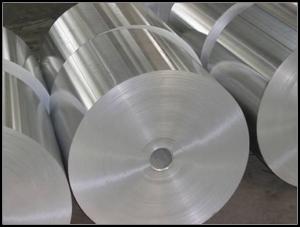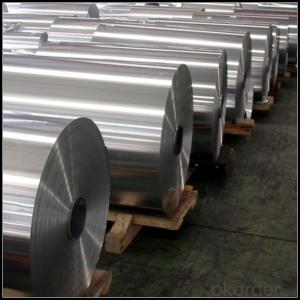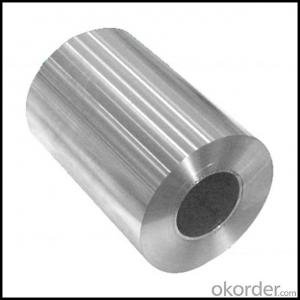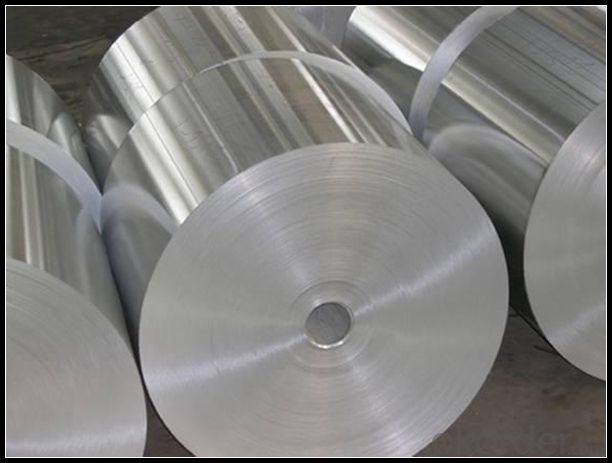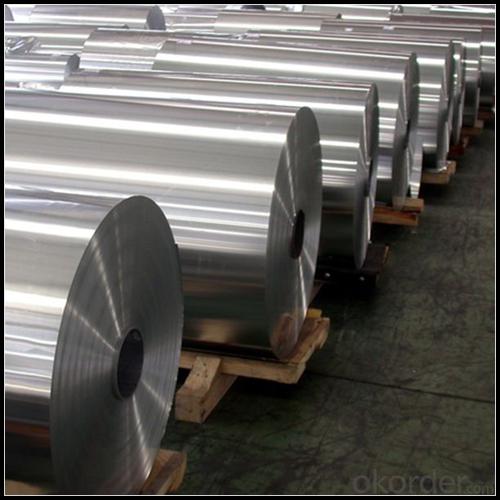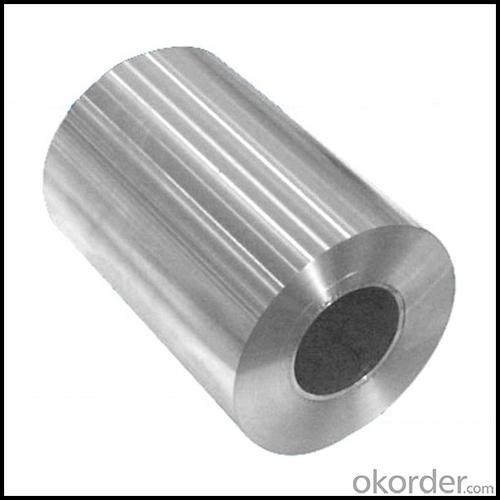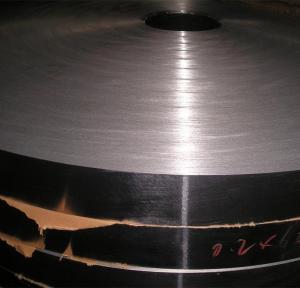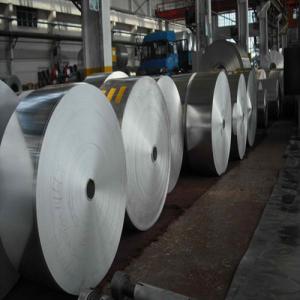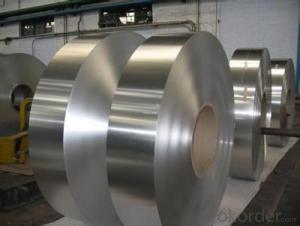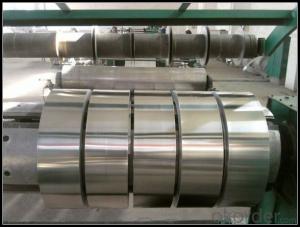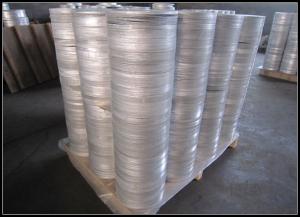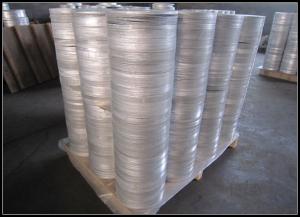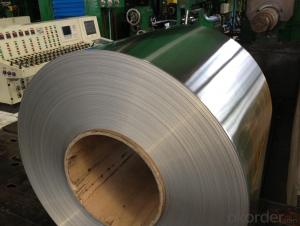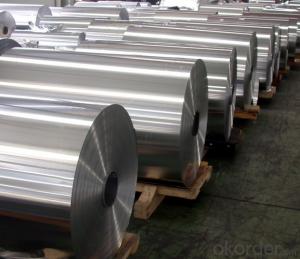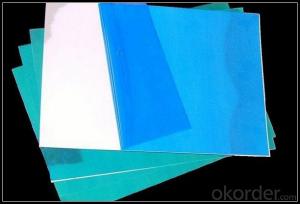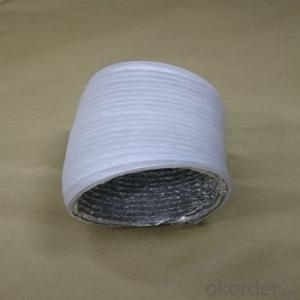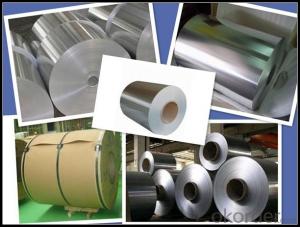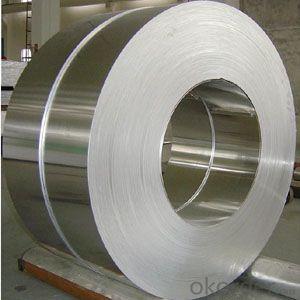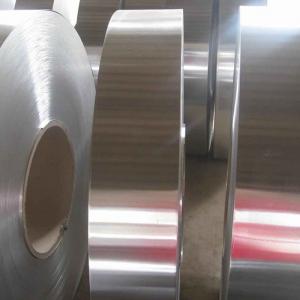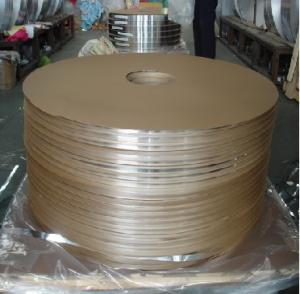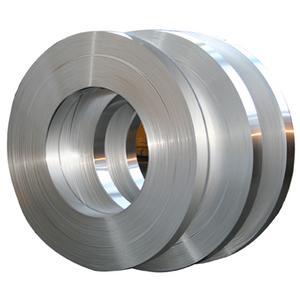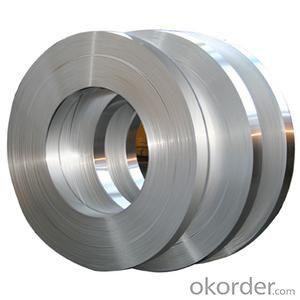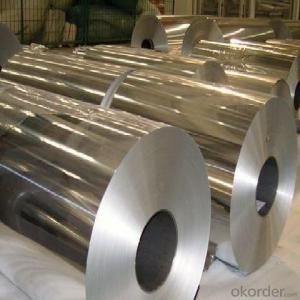Aluminum Metal Strips - AA1100/1050/1060/1070 Aluminum Coil in Different Sizes
- Loading Port:
- Tianjin
- Payment Terms:
- TT OR LC
- Min Order Qty:
- 5 m.t.
- Supply Capability:
- 4999 m.t./month
OKorder Service Pledge
OKorder Financial Service
You Might Also Like
Specification
1. Structure of Aluminium Sheet Description
1) Alloy | 1050, 1060,1100, 3003 3004 3105 3005 5005 5052 etc |
2) Temper | O/H12/H14/H1/H18/H32/H34/H36/H38//H111/H112/H116/H321/T6/T651/T3/T351 etc |
3) Thickness | 0.1mm to 6mm |
4) Width | 20mm to 3300mm |
5) Coil weight | 100kgs to 6 tons depends on actual requirement |
6) Core material | Aluminum alloy |
7) Coil Inner diameter | 76mm, 152mm,or as required |
2. The Main Features of Aluminium Sheet
(1).Interior: wall cladding, ceilings, bathrooms, kitchens and balconies, shutters, doors...
(2).Exterior: wall cladding, facades, roofing, canopies, tunnels,column covers , renovations...
(3).Advertisement: display platforms, signboards, fascia, shop fronts...
3. Image of Aluminum
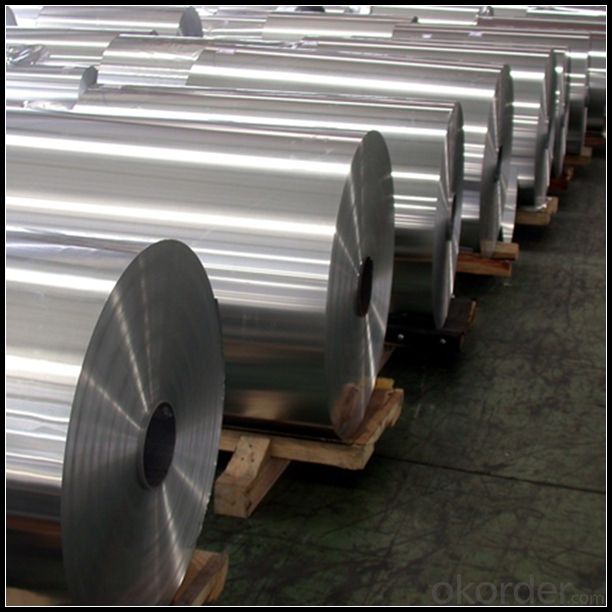
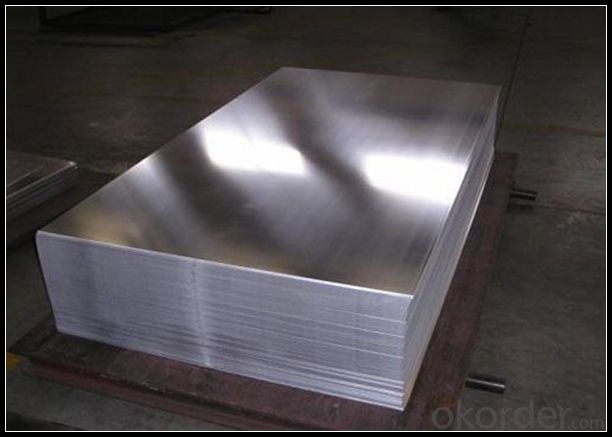
4. Aluminium Sheet Specification
SGS and ROHS(if client request, paid by client), MTC(plant provided), Certificate of Origin(FORM A, FORM E, CO), Bureau Veritas and SGS (if client request, paid by client), CIQS certificate
5. FAQ
1. Minimum Order Quantity?
MOQ is 25 tons, your quantity is ok, the aluminium foil sample is available.
2. What kind of terms of payment?
T/T, L/C,D/A,D/P,Western Union are available.
3. What grams of the product can you offer?
Our products can be customized according to your requirment
4.Can you do Customization & Reproduction if I provide a photo?
Yes, we do Customization & Reproduction service, please check the details and sample above.
You need to send the pictures to our email, tell us the specification you want,
then we will quote you exact price. We will take photos for you check.
- Q: This question asks about the various forms or configurations that aluminum strips can take in terms of their shape.
- <p>Aluminum strips are available in various shapes to meet different industrial and manufacturing needs. Common shapes include rectangular, square, and circular strips. Rectangular strips are the most common and can be found in various thicknesses and widths. Square strips are less common but still used in specific applications. Circular strips, also known as aluminum wire, are used in electrical applications and other areas requiring a round cross-section. Other shapes like triangular, hexagonal, or custom profiles can also be produced but are less standard and typically require specialized manufacturing processes.</p>
- Q: This question asks if it is permissible to use recycled metal sheets in construction within the user's specific geographical area.
- <p>The legality of using recycled metal sheets in construction projects varies by region and state. It is essential to consult local building codes and regulations, as they dictate the acceptable materials for construction. Some areas may have strict guidelines regarding the use of recycled materials due to concerns over structural integrity and safety. In other regions, there may be incentives or regulations promoting the use of recycled materials for environmental and sustainability reasons. Always check with your local building department or consult a construction professional to ensure compliance with all applicable laws and codes.</p>
- Q: What benefits does using aluminum strips provide compared to other materials?
- <p>Aluminum strips offer several advantages over other materials, including high strength-to-weight ratio, excellent corrosion resistance, and good thermal conductivity. They are lightweight, which is beneficial for reducing the weight of structures or products. Aluminum's resistance to corrosion means it requires less maintenance and has a longer lifespan. Additionally, its thermal conductivity makes it suitable for applications where heat transfer is important, such as in heat sinks or cookware. Aluminum strips are also easy to work with, allowing for easy fabrication and customization, and they are cost-effective, making them a popular choice in various industries.</p>
- Q: What are the potential safety hazards associated with the use of aluminum strips?
- <p>Aluminum strips are generally safe to use, but there are a few safety concerns to consider. They can be sharp and cause cuts if handled improperly. Additionally, aluminum dust, if inhaled, can cause respiratory issues. It's important to handle aluminum strips with care, wear protective gloves, and avoid inhaling dust. In the case of electrical applications, ensure that aluminum strips are properly insulated to prevent electrical shocks. Always follow safety guidelines and manufacturer instructions when using aluminum strips.</p>
- Q: Is it possible to use aluminum strips as materials for roofing membranes?
- <p>Yes, aluminum strips can be used for roofing membranes. They are known for their durability, corrosion resistance, and lightweight properties, making them suitable for various roofing applications. Aluminum strips can be used in the form of standing seam metal roofs, which are popular for their sleek appearance and strength. They are also low maintenance and can be recycled, contributing to their environmental sustainability. However, it's important to ensure proper installation and sealing to prevent leaks and maintain the integrity of the roof.</p>
- Q: What precautions should be taken while handling aluminum strips to ensure safety?
- <p>When using aluminum strips, it's important to follow safety measures to prevent injury or damage. Always wear protective gloves and eyewear to protect against sharp edges and flying debris. Ensure good ventilation to avoid inhaling aluminum dust, which can be harmful. Avoid using aluminum strips near open flames or high heat sources as aluminum can melt and cause burns. Keep aluminum strips away from corrosive chemicals that can react with it. Store aluminum strips properly to prevent damage and ensure they are dry to avoid rusting. Always follow the manufacturer's guidelines for safe handling and usage.</p>
- Q: Is it possible to recycle aluminum strips more than once?
- <p>Yes, aluminum strips can be recycled multiple times. Recycling aluminum is an efficient process that retains much of the metal's original properties, allowing it to be reused in various applications. The recycling process reduces energy consumption and environmental impact compared to producing aluminum from raw materials. Each time aluminum is recycled, it can be remelted and reformed without significant loss in quality, making it one of the most sustainable materials for recycling.</p>
- Q: What are the regular maintenance concerns associated with aluminum siding on buildings?
- <p>Aluminum siding is generally low-maintenance, but there are a few issues that may require attention. These include checking for dents or damage caused by impacts, ensuring proper drainage to prevent water damage, and cleaning to remove dirt and grime that can dull the finish. Additionally, it's important to inspect for signs of corrosion, especially in coastal areas with high salt content, and to address any loose or peeling paint to prevent further damage. Regular inspection and minor repairs can help maintain the longevity and appearance of aluminum siding.</p>
- Q: Which brand of aluminium band for dry transformer?
- Of course, according to the requirements of customers, but most of them are pure aluminum
- Q: What types of aluminum strips are known for their durability?
- <p>Yes, there are several types of aluminum strips known for their durability. One of the most durable types is 7075 aluminum, which is an alloy that offers high strength and is commonly used in aerospace applications. Another durable option is 6061 aluminum, which is a heat-treatable alloy with good mechanical properties and is often used in construction and transportation. Additionally, 3003 aluminum is known for its corrosion resistance and is used in applications where durability against weathering is important. The durability of aluminum strips can also be enhanced through various surface treatments and coatings.</p>
Send your message to us
Aluminum Metal Strips - AA1100/1050/1060/1070 Aluminum Coil in Different Sizes
- Loading Port:
- Tianjin
- Payment Terms:
- TT OR LC
- Min Order Qty:
- 5 m.t.
- Supply Capability:
- 4999 m.t./month
OKorder Service Pledge
OKorder Financial Service
Similar products
Hot products
Hot Searches
Related keywords
